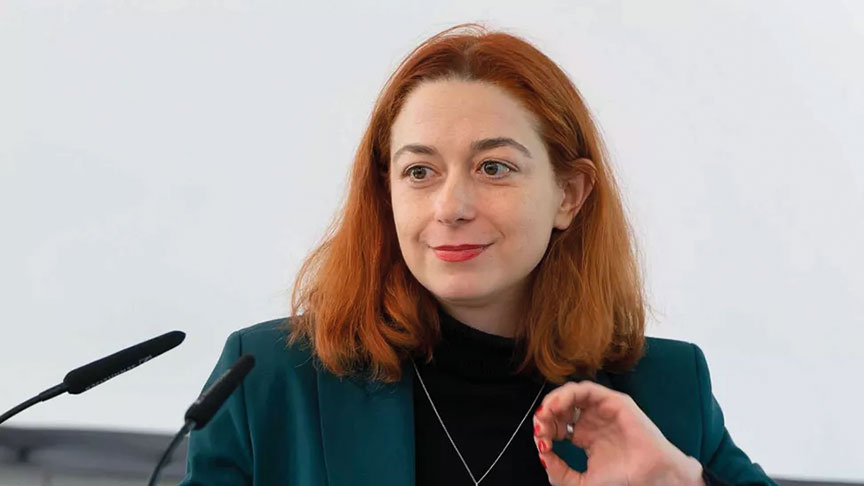Interview: Sarah Kanning
“Project-based funding threatens academic freedom”
Dr Milica Popović researches the economics of academic freedom. In our interview she explains why she believes that not only governments but also the DAAD have a duty in this respect.
Dr Popović, in November 2022, the DAAD presented the “Fundamental Academic Values Award” for the first time. You were awarded the prize because of your valuable research on academic freedom. What exactly is the subject of your research?
The Global Observatory on Academic Freedom aims to conduct rigorous academic research on academic freedom and to propose an up-to-date conceptualisation of academic freedom, as conceived of by the academic community itself. We highlighted the need to rethink the subjects of academic freedom and understand the position of early career researchers and unaffiliated scholars, as well as of students. But we also tried to raise awareness of the unusual suspects, namely the countries within the Western hemisphere and the attacks and infringements academics are suffering even within the so-called democratic countries. Moreover, we tried to underline the economic aspect, the economics of academic freedom – there are political pressures, but when funding for higher education and research becomes scarce and overwhelmingly private, science becomes vulnerable to additional pressures and not-so-obvious attacks.
This economic dimension has implications for research – both at universities and for individuals. How could this be countered?
We are witnessing a growing decrease in funding of higher education by governments across the world, leaving universities dependent on autonomous financial sources; this often leads to tuition fees for (foreign) students and project-based funding, which is exactly what research institutes are now almost exclusively dependent upon. Without sufficient basic funding, science and innovation cannot flourish. Academic freedom becomes dependent on the interests of funding agencies, and researchers find themselves “chasing” popular and politically suitable topics, in addition to spending enormous amounts of time on project proposal preparation and project management. Not to mention the mental and physical health toll this takes, especially on early career researchers who are fully dependent on projects and do not have stable employment. Project-based funding is one of the biggest threats to academic freedom in Western European countries and is leaving science increasingly vulnerable. We need governments to understand the importance of higher education and research and to significantly increase their funding instead of increasing military budgets at the expense of science.
What is the significance of intermediary organisations like the DAAD acting independently of politics and which role could they play?
The DAAD can play an important role in raising awareness about the insufficient attention that governments and society are paying to higher education and research, and in making sure that international cooperation in science and education is not hijacked by geopolitics. The DAAD cannot and should not replace governmental funding; such developments would threaten academic freedom, as project-based funding does in general. Rather, the DAAD and similar organisations can promote academic freedom through their projects and established cooperations. DAAD should be at the forefront of protecting academic freedom, as understood by the academic community itself, and not fall prey to political abuses of the fundamental values of higher education. –
Dr Milica Popović researches academic freedom. She was leading the Global Observatory on Academic Freedom and working as a Postdoc Fellow. She is currently working as an independent researcher.

